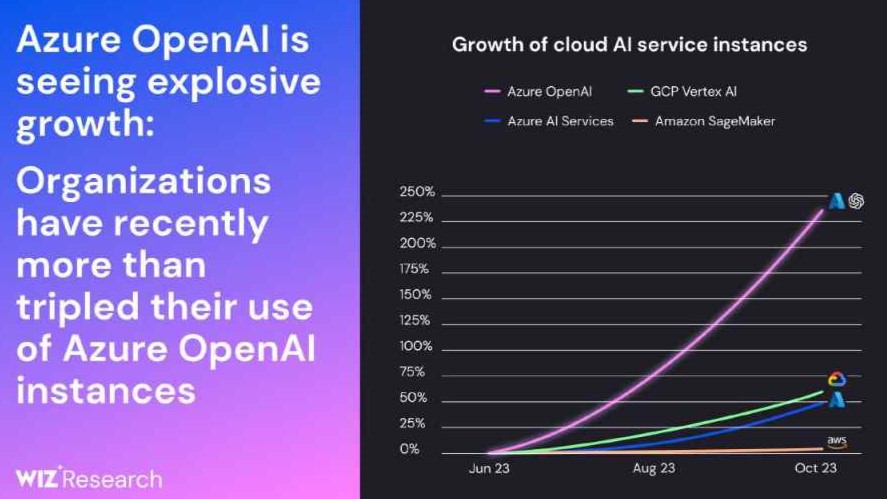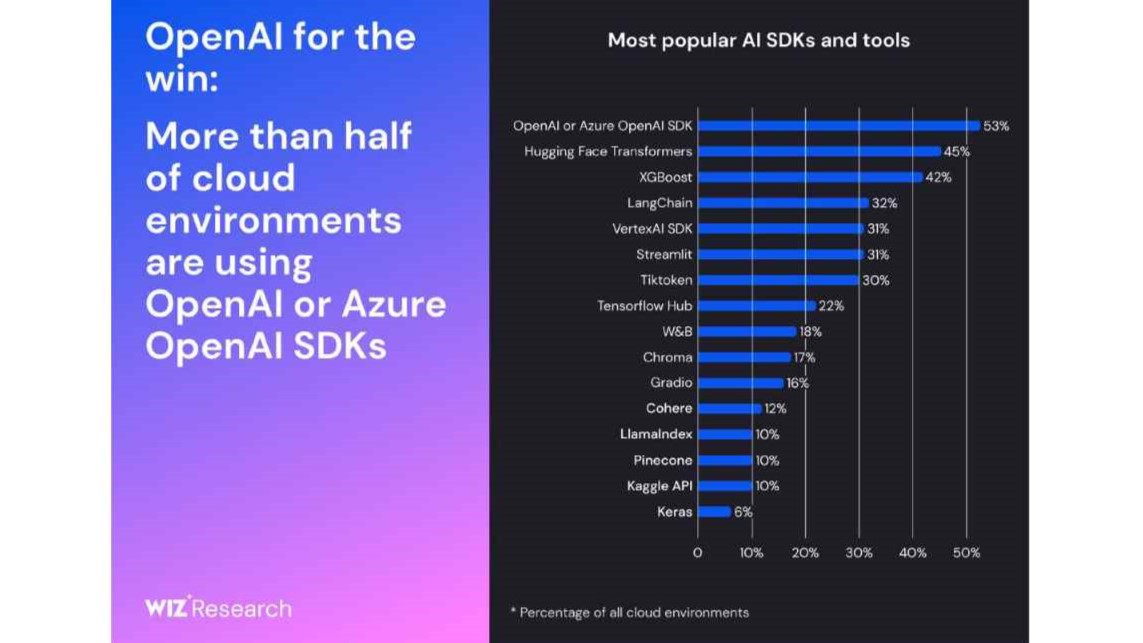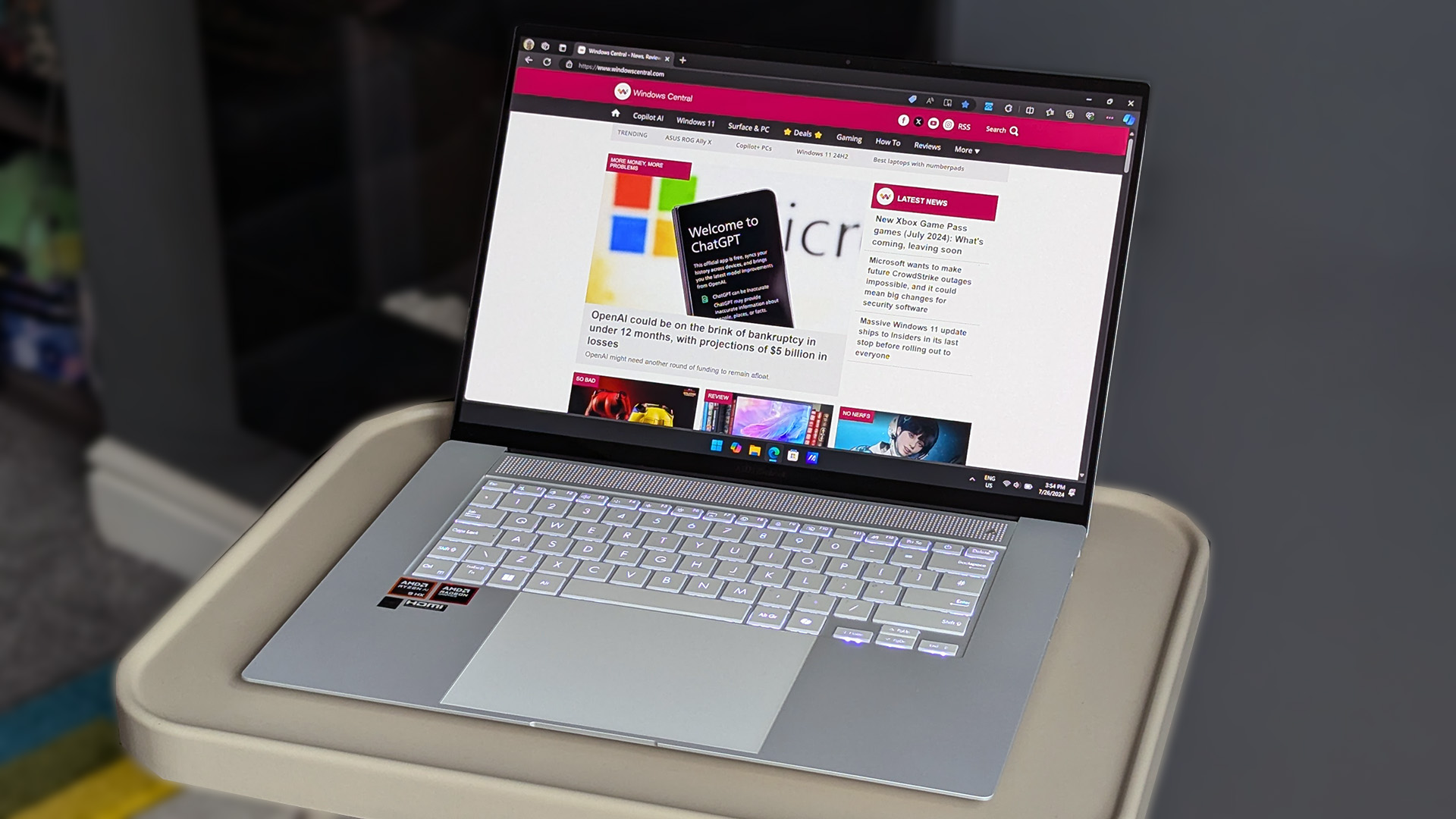Microsoft's Azure 'leads the pack' as the top managed AI service in the cloud among cloud service providers, says a study published by WIZ
A new study published by WIZ shows that over 70% of organizations are using managed AI services, and Azure has the lion's share of that market.

All the latest news, reviews, and guides for Windows and Xbox diehards.
You are now subscribed
Your newsletter sign-up was successful
What you need to know
- WIZ is a leading cloud cybersecurity company that offers the full gamut of protection in the cloud. They performed a study to see how companies worldwide were adopting AI.
- Over 70% of organizations' cloud environments utilize cloud-based managed AI services.
- From June to October 2023, just 4 months, Azure OpenAI instances grew an insane 228%. There is a massive uptick in AI adoption by companies now with Cloud AI services.
- More than half of all cloud environments throughout the companies questioned are using OpenAI or Azure OpenAI SDKs (software development kits)
If there is one thing that is painfully obvious to most of us long-time fans of Microsoft, it is that they are not a consumer-facing company but an enterprise-facing one. While that might be less than ideal for those of us looking for the latest and greatest in innovation for Surface devices, Xbox hardware, or even a revival of the long-dead Windows Phone, Microsoft's push towards an enterprise-only mindset seems to be paying off, especially in regards to Azure AI services for large corporations.
In a recent study published by WIZ, the cloud security firm takes a deeper look at adoption rates of managed AI services in the cloud of over 150,000 cloud accounts. There are quite a few key items to take away from the study, but what stood out the most was the explosive adoption rate in just the last 6 months and Microsoft and OpenAI's dominance in the market. Let's look at some of the data from the report and see just how well Microsoft's AI push is paying off.
How successful is Azure OpenAI?
The WIZ Research team did a great job correlating this data and breaking down the major highlights from their research. According to the report, organizations have tripled their utilization of Azure OpenAI instances.
"Over a 4-month period between June and October 2023, the total number of Azure OpenAI instances observed across all cloud environments grew by a whopping 228% (with a ~40% month-over-month average). For comparison, the average instance growth in the same period for most other Azure AI Services (such as Text Analytics and Bing Custom Search) was only 13%."
WIZ points out that Amazon's recently released Bedrock was omitted since it was only made available to the general public in September 2023, and this data set is from June through October.
It's hard to look at a graph like this and not see an obvious win for Microsoft. As we have all seen in the headlines, Microsoft's investment in AI is paying great dividends to its investors and driving its value up so high it's now the most valuable company in the U.S.
While I'm not ecstatic about Microsoft leaning so heavily into enterprise solutions, they are using their free consumer-facing Copilot as a driving factor of enterprise adoption through word of mouth and general buzz, and it seems to be working.
All the latest news, reviews, and guides for Windows and Xbox diehards.
What does the future of Azure OpenAI and Copilot look like?
While it seems like consumers must be dragged to the AI water troth, Microsoft is happy to lead us there either with the carrot or the stick. Integrating Copilot into everything Office 365 or becoming the household name for AI, leading to organizations choosing to go with OpenAI or Azure OpenAI over other competitors, all seem to be a winning strategy.
If you look at Microsoft's CEO Satya Nadella's Twitter(X) feed, it's nearly all related to the company's push and vision for its AI offerings. They have pledged to assist organizations across industries in progressing through AI services.
From Copilot to new data solutions in Microsoft Fabric, we are bringing new capabilities to our Cloud for Sustainability, as we help organizations across every industry move from pledges to progress. https://t.co/JNIcesqIaTFebruary 13, 2024
If you haven't jumped on board the AI train yet. Copilot should be available in Windows 11 and is a great jumping-off point to start figuring out what AI can do for you. Check out our guide on how to get started with Copilot and see if it can help improve your productivity. Microsoft let cybersecurity professionals test out Microsoft Security Copilot, which led to a massive increase in productivity and speed in analysis and responding to cyber incidents.
As AI grows and more organizations adopt AI cloud services, there will be a larger and larger attack surface for cyber-attacks. The need for trained cybersecurity professionals will only increase, especially those well-versed in AI prompts and understanding AI workflows and tools. Are you interested in getting started in cybersecurity? Check out our guide on the best ways to get a foothold in the industry.
We expect to hear a bunch of AI news in 2024. From NPUs launching in most of the new laptops like the Dell XPS 14 to a dedicated Copilot button coming standard on new Windows 11 laptops, the whole world has pivoted to AI. Seeing these numbers for managed AI cloud services by companies proves to me now more than ever that AI is not a fad but is a real money driver and is here to stay.

Colton is a seasoned cybersecurity professional that wants to share his love of technology with the Windows Central audience. When he isn’t assisting in defending companies from the newest zero-days or sharing his thoughts through his articles, he loves to spend time with his family and play video games on PC and Xbox. Colton focuses on buying guides, PCs, and devices and is always happy to have a conversation about emerging tech and gaming news.


